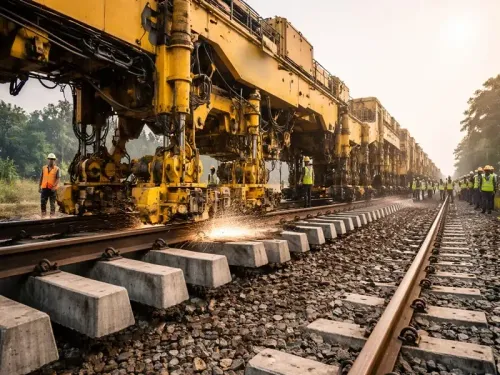Will the Bengal Government Meet the Supreme Court's Deadline for DA Payments?

Synopsis
Key Takeaways
- Deadline for DA payment is midnight June 27.
- Current DA is only 18% compared to 55% for Union government employees.
- Legal challenges may arise if the government fails to act.
- Estimated cost for pending dues is around Rs 12,000 crore.
- State employees are prepared for further action if necessary.
Kolkata, June 27 (NationPress) With less than 12 hours remaining to fulfill the Supreme Court's ultimatum for the West Bengal government to disburse 25 percent of the outstanding dearness allowance (DA) to both current and former state employees, significant legal hurdles are anticipated.
The definitive deadline is set for midnight on June 29. However, given that June 28 and June 29 are public holidays for the state government, the actual deadline effectively shifts to midnight on June 27.
As Chief Minister Mamata Banerjee participates in the Ratha Yatra celebrations at the Lord Jagannath Temple in Digha, East Midnapore district, the possibility of a last-minute announcement regarding the payment of the 25 percent dues appears increasingly uncertain.
The United Forum of State Government Employees, which represents the collective interests of state employees advocating for this cause, has warned that if the government fails to issue any notification, it should prepare for potential legal confrontations, including charges of contempt of court.
"We will wait until midnight on Friday. Should the notification not be released, we will reveal our detailed strategies on Saturday. Both current and retired state government employees have demonstrated remarkable patience. They will maintain this patience until Saturday morning. We are refraining from sharing our complete plans at this moment. However, if the state government does comply with the Supreme Court's directive, it will face a dual challenge—both legal and public demonstrations," stated Bhaskar Ghosh, the forum's convener, on Friday morning.
At present, West Bengal government employees receive a dearness allowance rate of merely 18 percent, in stark contrast to the 55 percent allotted to their counterparts in the Union government and several other state administrations.
The anticipated payment of 25 percent of the outstanding dues is projected to cost the state treasury approximately Rs 12,000 crore.
Employees from the State Finance Department express concerns that this financial outflow may adversely affect various monthly disbursements associated with state-run welfare programs.










